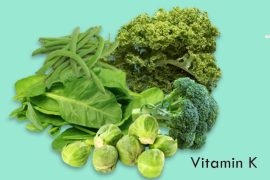Mandarin oranges, as their name suggests, are believed to have originated in ancient China and are distinct from regular oranges in various ways. They are characterized by their deep orange, leathery peel and have an oblong shape that makes them easier to peel. Despite being commonly referred to as mandarin oranges, they belong to a different species compared to the regular oranges we typically consume, and they offer various health benefits.
Dr. Ushakiran Sisodia, a dietician and clinical nutritionist at Nanavati Max Super Speciality Hospital in Mumbai, elaborated on the health benefits of these oranges. However, the provided text does not specify these health benefits. If you would like to know more about the health benefits of these oranges, please let me know, and I’d be happy to provide further information.
Nutritional profile:
Here is the nutritional profile of 100 grams of mandarin oranges, as provided by Dr. Ushakiran Sisodia:
- Calories: Approximately 53
- Carbohydrates: 13 grams
- Fiber: 1.8 grams
- Sugars: 10.5 grams
- Vitamin C: Approximately 27% of the Daily Value
- Folate: Approximately 4% of the Daily Value
- Calcium: 37 milligrams
- Potassium: 166 milligrams
Mandarin oranges are not only delicious but also offer a good source of essential nutrients, especially vitamin C, which is known for its antioxidant properties and its role in supporting the immune system. The fiber content can aid in digestion, and the low-calorie count makes them a healthy snack option. Additionally, the presence of calcium and potassium adds to their nutritional value.\
Health benefit:
1. Prevents Ageing:
Mandarin oranges contain flavonoids, which have antioxidant properties. Antioxidants help in combating oxidative stress, potentially reducing the signs of aging and decreasing the risk of diseases like cancer.
2. Builds Immunity:
These oranges are rich in Vitamin C, a well-known immune system booster. Consuming mandarin oranges can contribute to a stronger immune system, enhancing the body’s ability to defend against infections and illnesses.
3. Great for Digestion:
The dietary fiber found in these oranges is beneficial for the digestive system. It aids in regular bowel movements, prevents constipation, and promotes a smooth digestive process.
4. Maintains a Healthy Heart:
Mandarin oranges contain potassium, which is essential for regulating blood pressure. Maintaining healthy blood pressure is crucial for overall cardiovascular health and can reduce the risk of heart-related issues.
For diabetics:
Diabetics can consume mandarin oranges, but it’s essential to exercise caution and moderation. While the natural sugars in these oranges may be appealing, it’s important to maintain a balanced approach to managing blood sugar levels.
Dr. Sisodia suggests that mandarin oranges can be a part of a diabetic’s diet, but portion control is crucial. Monitoring the quantity consumed is important to prevent significant spikes in blood sugar levels. As with any dietary choices for diabetics, it’s advisable to consult with a healthcare professional, such as a dietician or diabetologist, to develop a dietary plan that aligns with individual health needs and to keep track of blood sugar levels after consumption. This way, diabetics can enjoy the benefits of these oranges while maintaining stable blood sugar control.
For pregnant women:
Mandarin oranges can be a valuable addition to the diet of expectant mothers due to their rich folic acid content, crucial for the baby’s development, especially in the early stages of pregnancy. Additionally, the vitamin C in these oranges can enhance iron absorption, a vital component during pregnancy to support increased blood volume and the growing needs of the developing baby. However, moderation is key, and it’s essential for pregnant women to consult with their gynecologist or healthcare provider before incorporating mandarin oranges into their diet to ensure it aligns with their specific health needs and dietary requirements during pregnancy.
Precautions:
Before adding mandarin oranges to your diet, it’s important to consider the following factors, as highlighted by Dr. Sisodia:
Allergies: Although rare, allergies to mandarin oranges can occur. Symptoms may include skin reactions such as itching and irritation. It’s advisable to be aware of any allergic reactions when consuming them.
High Sugar Content: Mandarin oranges contain natural sugars. If you are monitoring your sugar intake, it’s essential to be mindful of the sugar content in the fruit.
Overconsumption: Overindulging in these oranges can lead to digestive discomfort, as the fruit has an acidic nature that might result in an upset stomach. It’s important to consume them in moderation to avoid such issues and maintain overall digestive health.
Dr. Sisodia addresses common misconceptions about mandarin oranges. It is a common belief that mandarin oranges are “zero-calorie” fruits; however, Dr. Sisodia clarifies that while they are indeed low in calories, they are not entirely calorie-free. Additionally, there is a myth that mandarin oranges can magically cure colds. While their vitamin C content can enhance the immune system, they do not directly cure colds but can aid in overall health and immune support. These clarifications help provide a more accurate understanding of the nutritional value and potential benefits of these oranges.
Disclaimer:
The information contained in this article is for educational and informational purposes only and is not intended as a health advice. We would ask you to consult a qualified professional or medical expert to gain additional knowledge before you choose to consume any product or perform any exercise.








